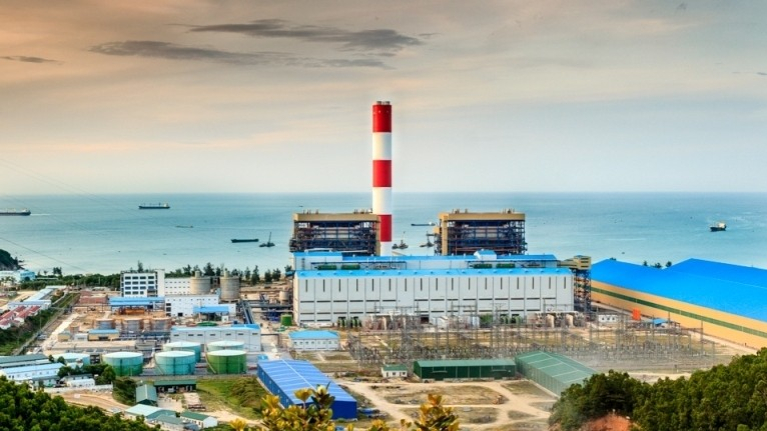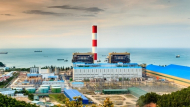Standard Chartered's coal deals undermine leadership of Equator Principles
Johan Frijns, Director BankTrack, T. +31 24 324 9220
Julien Vincent, Executive Director Market Forces

Johan Frijns, Director BankTrack, T. +31 24 324 9220
Julien Vincent, Executive Director Market Forces
Environmental campaigning organisations have reacted with astonishment today on the appointment of Standard Chartered as leader of the Equator Principles, given the role the bank has played in multiple recent and current deals that clearly violate these principles.
“Standard Chartered has been a repeat offender of the Equator Principles in recent years,” said Julien Vincent, Market Forces Executive Director. “Even as it assumes this leadership role, it remains involved in a deal for the proposed Vung Ang 2 coal power plant in Vietnam that has failed to satisfy several of the Principles.
“The whole point of the Equator Principles would be undermined if its lead bank pushes ahead with coal deals which so clearly flout the rules.”
“If this appointment is to have any credibility, we should expect to hear Standard Chartered confirm its withdrawal from Vung Ang 2 immediately”, said Mr Vincent.
The Equator Principles represent the standard for financing of large-scale projects, developed as a risk management framework in order to mitigate the significant environmental and social risks of these projects. Given the myriad risks, large coal power projects are listed as category A - “Projects with potential significant adverse environmental and social risks and/or impacts that are diverse, irreversible or unprecedented.”
According to the new Equator Principles, also launched today, an Equator Principles Financial Institution will not provide financial services where the client will not, or is unable to, comply with the EPs. In the case of Vung Ang 2, the Principles are compromised by:
- failure to ensure that the sponsors explore alternatives to Vung Ang 2 despite the existence of viable, and in fact soon to be cheaper, renewable alternatives to coal power;
- failure to ensure that the project sponsors disclose information key for communities to evaluate the impacts of proposed power stations, whether through ESIAs or other means; and,
- failure to require that communities are informed and engaged by ensuring the sponsors hold adequate public consultations and engage stakeholders at the time of the ESIA and on an ongoing basis. (see table below for details on these violations)
Vung Ang 2 is proposed to be constructed on a site proximate to the Formosa Steel plant and the Vung Ang 1 coal plant, both of which have raised community protest. In 2016, a toxic spill from the nearby Formosa steel mill devastated a hundred miles of ocean coastline, decimating fisheries and depriving communities of both sustenance and livelihoods. To make matters worse, ash and air pollution from a nearby coal power power station, Vung Ang 1, has caused communities significant fear for their health, remaining fisheries and farms according to local media reports. Vung Ang 2 will only add to the pollution and uncertainty faced by communities in this area.
Standard Chartered made headlines in September 2018 when it said that it was out of all new coal power, citing the disastrous effects of coal power on climate, but has grandfathered this polluting project, while remaining a major backer of the coal industry through corporate lending and the bond market, keeping it exposed to myriad violations of the Equator Principles.
Standard Chartered is also taking the helm during a period of controversy, as the global cry for accountability for financiers of fossil fuel projects has become stronger. In advance of today’s meeting of the Equator Principles Association, 312 civil society organisations from 58 countries called for a significant revision of the Principles themselves. Projects posing massive environmental and human rights risks to people and planet should no longer be eligible for financing under the Equator Principles, the campaign argued. The call did not stop the Equator Principles Association from adopting a new version of the Equator Principles that amounts to ‘business as usual’ for the initiative in the years to come.
“The Vung Ang 2 coal power project is just an example of a project that shouldn’t be allowed for funding by Standard Chartered and other EP financial institutions under the new Equator Principles, if they are at all concerned about mitigating environmental and social risks. In 2019, with the world facing multiple social and environmental crises, we expect a serious commitment from financial institutions to thoroughly change the way they do business. Sadly, the new Principles will continue to allow the financing of projects that contribute to such crises'' said Johan Frijns, Director of BankTrack. "Putting Standard Chartered as a continued financier of Vietnamese coal in charge of the Equator Principles would be like putting the fox in charge of the hen house. Standard Chartered must lead the Equator Principles Association by example and immediately withdraw from financing coal projects."
Table
|
Principle |
Violation |
|
Principle 2: Environmental and Social Assessment
For all Projects, in all locations, when combined Scope 1 and Scope 2 Emissions are expected to be more than 100,000 tonnes of CO2 equivalent annually, an alternatives analysis will be conducted to evaluate less Greenhouse Gas (GHG) intensive alternatives. |
Most coal-fired power stations would meet this threshold.
There are far safer alternatives to Vung Ang 2 in Vietnam. According to a recent report from financial think tank Carbon Tracker, in 2020 it will already be cheaper in Vietnam to invest in new solar PV than new coal, with new onshore wind generated power expected to become cheaper than coal power in 2021. By the time Vung Ang 2 is built, renewable energy in Vietnam will already be cheaper than coal power.
Solar and wind projects have also been proven viable in Vietnam. Approved solar and wind projects as at July 2019 surpassed targets in Vietnam’s power development plan, with the 2025 target for solar PV capacity installed (4 GW) in Vietnam being met six years early. |
|
Principle 3: Applicable Environmental and Social Standards
For Projects located in Non-Designated Countries, the Assessment process evaluates compliance with the then applicable IFC Performance Standards on Environmental and Social Sustainability (Performance Standards) and the World Bank Group Environmental, Health and Safety Guidelines (EHS Guidelines). |
The IFC Performance Standards require consultation directly with project-affected communities.
The most recent ESIA from 2011 does not demonstrate that the project-affected community was consulted on the issues. While consultation meetings were held with government officials, project-affected community members were merely asked questions about various issues such as their knowledge about the project, water usage or transportation needs.
Owing to the fact that no further ESIAs have been made public, there is no evidence that the Performance Standards have been complied with. |
|
EP 5: Stakeholder engagement
For Projects with potentially significant adverse impacts on Affected Communities, the client will conduct an Informed Consultation and Participation process.
To facilitate Stakeholder Engagement, the client will, commensurate to the Project’s risks and impacts, make the appropriate Assessment Documentation readily available to the Affected Communities, and where relevant Other Stakeholders, in the local language and in a culturally appropriate manner.
|
As noted above, local communities have not been made aware of the potential impacts of this project or been consulted on how to mitigate any harms. These violations would be ongoing, as the obligations of stakeholder management are ongoing.
There was also no indication that project specific information was provided to the community members about the project at the time of the survey that could inform the communities in their decision-making. In fact, during the survey conducted during the 2011 ESIA it was noted that 136 out of 186 households mentioned that they did not know basic information about the project including the exact location of the project, who the owner of the project was, and the type of project. This was their main concern. The ESIA does not indicate how this information gap was remedied.
|

